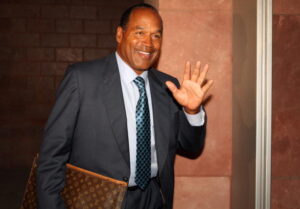Spring, the season of rebirth, is as good a moment as any to review the second lives of the formerly cancelled. Some are faring better than others: Louis C.K., for one, is fully back in business, albeit after taking a multi-million dollar financial hit for his masturbatory scandal circa 2017. Roseanne Barr, who lost her TV series over a racist (and allegedly Ambien-induced) tweet is now a moderately successful podcaster, as well as a cast member on a new, “anti-woke” animated series from The Daily Wire. Shane Gillis, fired from Saturday Night Live over offensive comments, was welcomed back to the stage as host this year, a sure sign that all was forgiven.
These are the success stories, the comebacks, the triumphs over adversity. But then, in a category all his own, there’s Jussie Smollett.
Smollett was initially moderately famous as a TV actor on the Fox network show Empire, where he’d been a regular cast member for five seasons from 2014. But then, in 2019, he shot to global infamy as the perpetrator of a hoax hate crime — one that has remained vivid in our collective memory not just because of its sensationally improbable narrative, but because Smollett refuses to let us forget.
It was a brutally cold night in Chicago, in January, when two white men allegedly assaulted Smollett after recognising him on the street at 2am. In the actor’s telling, they beat him, threw a noose around his neck, poured bleach over his head, and screamed, “This is MAGA country!”, before fleeing into the night.
It later emerged that Smollett had staged the attack with the specific intent of having it captured by a nearby security camera and creating a storm with it on social media (the tragic cherry on top of this whole sordid affair: the camera was pointed in the wrong direction). But at the time, the combination of a hate-crime narrative plus a MAGA hat-wearing villain stroked every confirmation bias that progressive pundits and politicians had.
There was an outpouring of support, including from then-senators Kamala Harris and Cory Booker. And the narrative, at least in Left-leaning spaces, settled somewhere in the vicinity of “this just goes to show what life is like for a gay black man in Donald Trump’s America”; which, once the truth emerged that Smollett’s attackers were in fact a pair of Nigerian brothers whom he’d hired to attack him, was swiftly retooled by Smollett’s supporters into a “nevertheless, my original point still stands” argument about how the fact they were fooled was surely proof of rampant racism in its own right.
Many careers and reputations fell to pieces in those heady final years of the Trump administration, when cancel culture was at its peak. But Smollett’s downfall is unique by comparison. He doesn’t quite fit the mould of the Hollywood bad-boy type whose delinquent or attention-seeking behaviour has resulted in criminal charges. He is no mere transgressor, nor a mere grifter; he’s a fabulist, which places him at a unique crossroads in the American cultural imagination. For those shameless enough to really commit to the bit, being an audacious liar can command a certain grudging respect. Consider P.T. Barnum, Frank Abagnale, even Donald Trump — each of them an icon in his own right, and all of them utterly full of shit.
Could Smollett have made himself into one of these, doubling down on his fabricated tale of victimhood with the same brazenness with which Trump continues to hammer the “stolen election” narrative? In this paradigm, the sheer ludicrousness of the story would even have been a selling point, and at least some people seem to have been ready to buy in: when Smollett was convicted on five counts of felony disorderly conduct, Black Lives Matter released a statement referring to the entire trial as “a white supremacist charade”, writing: “We can never believe police… over Jussie Smollett, a Black man who has been courageously present, visible, and vocal in the struggle for Black freedom.”
But this coping strategy was not adopted by the majority, for whom the entire thing was, if not forgotten, then very intentionally not discussed. Far from elevating Smollett to folk hero status a la Barnum or Trump, his initial supporters rapidly dispersed. Tweets were quietly deleted, and follow-up statements given grudgingly if at all. Smollett disappeared from the cast of Empire, and the show was cancelled the following season.
At the time of Smollett’s conviction — nearly two years after the story first broke — Wilfred Reilly wrote in UnHerd that the case revealed “an uncomfortable truth about race in America: that the constant exaggeration, or even invention, of incidents of bias by activists and media members is probably a bigger problem than the residual violent racism that still exists”.
Today, this seems truer than ever, in that the primary emotion aroused by Smollett among his former supporters is profound embarrassment. It also may explain why Smollett seems to have little hope of ever working again — if he even wants to, which is also an open question. For the past five years, the actor’s bandwidth has been largely consumed by the doomed project of sticking to his story, to insist on the ending he planned (and paid) for instead of the one he got. He continues to deny any wrongdoing and apparently intends to appeal his conviction all the way to the Supreme Court. These efforts may be understandable in a sunk-cost sort of way, but they are also having the opposite of their intended effect: the more he struggles to free himself from the mire of his infamy, the deeper he sinks, and the less sympathetic he becomes. Donald Trump, he is not.
In a parallel-universe, Smollett might have come clean, apologised, and paid restitution as soon as it became clear that his story was bullshit — and after a few dutiful weeks of mockery, we would all moved on to the next thing. In this alternative reality, Smollett is still working; Empire might even be still running. Despite that F. Scott Fitzgerald quote about there being no second acts in American lives, the reality of American culture is that we love a good comeback, even, or maybe even especially, after the most humiliating public misstep.
But you have to take your lumps, first, in a way that Smollett has categorically refused to do. His original, much-criticised plea deal eventually fell apart precisely because it included no admission of guilt. His conviction at trial, too, could have been avoided if he’d just owned up to the fabrication. Indeed, however embarrassing the hoax was, it has long since been eclipsed by the cringe-worthy spectacle of Smollett still insisting it happened.
All of this is to Smollett’s detriment — if for no other reason than that it’s to the embarrassment of powerful people whose support he would need most if he wanted to come back. This is what sets the actor apart from someone like Roseanne Barr or Louis C.K., but also someone like Barnum or Trump: in allowing himself to be made foolish, he made fools of his allies, too, duping them into the role of supporting actors in an offensive farce. If he’d been more charismatic, maybe he could have gotten away with this — or if he’d been more apologetic, perhaps he could have been forgiven. But his actual path, the third way, is the worst of both worlds: Smollett diligently continues to spin his wild tale of victimhood, playing the role of the brazen showman… but to an empty house.
Disclaimer
Some of the posts we share are controversial and we do not necessarily agree with them in the whole extend. Sometimes we agree with the content or part of it but we do not agree with the narration or language. Nevertheless we find them somehow interesting, valuable and/or informative or we share them, because we strongly believe in freedom of speech, free press and journalism. We strongly encourage you to have a critical approach to all the content, do your own research and analysis to build your own opinion.
We would be glad to have your feedback.
Source: UnHerd Read the original article here: https://unherd.com/



